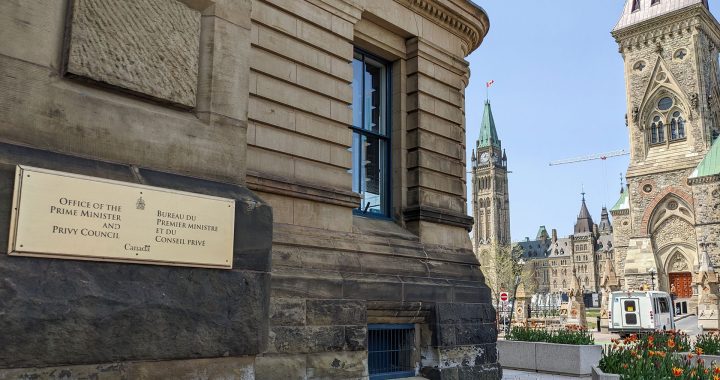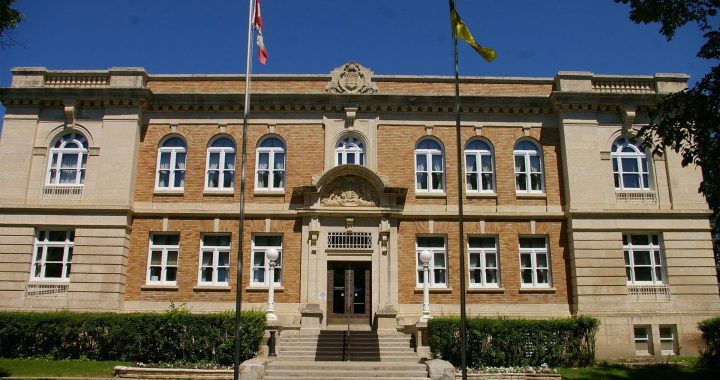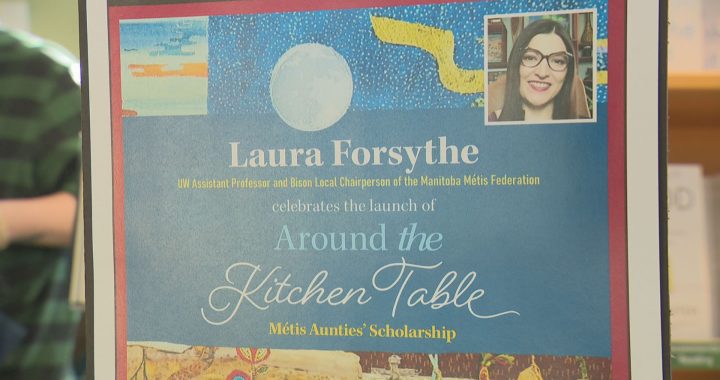(A group of altar boys at St. Annes in 1945. Photo: Algoma University/ Edmund Metatawabin collection)
Interview with St. Anne’s Indian Residential School Claimant K-10106: Betrayal, again
Canada vs. St. Anne’s Indian residential school survivor H-15019
Jean Chrétien, St. Anne’s and the ‘straight highway’ to Attawapiskat’s suicide crisis
Jorge Barrera
APTN National News
Survivors from a notorious Catholic-run Indian residential school which used an electric chair are now contemplating how to respond to a double-barreled courtroom loss that blocked their attempts to find out why federal lawyers sat on thousands of documents substantiating abuse and how a law firm that represented the Catholic Church could also act on behalf of former students.
Edmund Metatawabin said there will be a meeting next week with lawyers and survivors from St. Anne’s Indian Residential School on how to respond to last week’s ruling by Ontario Superior Court Justice Paul Perell which rejected two separate cases filed by survivors.
“It’s just very obviously hiding something. There are a lot of things I think that were ignored,” said Metatawabin. “I cannot accept that this decision is objective, free from any kid of pressures exerted on. I think the court has a hard time to condemn their own people, their own grandfathers, grandmothers, who are the architects and authors of policy that sees us as First Nations confined within a bureaucracy.”
St. Anne’s has emerged as one of the most notorious institutions in the dark history of residential schools. Students who attended the school, which sat along the Albany River near where it flowed into James Bay along Ontario’s northeastern coast, suffered a wide range of abuses at the hands of the nuns, priests and St. Anne’s workers. The school is infamously known for an electric chair used for punishment and entertainment.
The majority of students who attended St. Anne’s came from Attawapiskat, Fort Albany First Nation, Moosonee, Moose Factory and Winisk-Peawanuck. The high suicide rates in the region are often linked to the level of trauma suffered by the population who attended St. Anne’s.
Perell last week issued a ruling dismissing two cases filed by St. Anne’s survivors—one by Metatawabin and a survivor who can only be identified as K-10106; another filed by a survivor who can only be identified as H-15019.
Both cases were officially described as requests for directions which essentially petitioned the court to intervene in the abuse compensation process known was the Independent Assessment Process (IAP). The IAP was created by the multi-billion dollar Indian residential school settlement agreement.
Perell dismissed Metatawabin and K-10106’s request for directions on grounds they did not have standing to proceed because they were not parties directly linked to the residential school settlement agreement.
“My heart sunk when I read Justice Perell’s decision,” said K-10106 in a prepared statement sent to APTN. “I felt discouraged and betrayed again by the government of Canada. So, I ask you, where is the reconciliation, the justice and our legal rights, in this decision?”
Metatawabin and K-10106 asked the court to extend the IAP filling deadline—which already passed—so remaining St. Anne’s Indian residential school students could apply for compensation, reopen already settled St. Anne’s cases and investigate why Canada sat on thousands of Ontario Provincial Police documents that substantiated abuse at the school. Metatawabin and K-10106 also wanted to court to investigate the behavior of two law firms which handled St. Anne’s IAP claims.
Perell also dismissed a request for direction filed by a survivor identified in court documents as H-15019 who alleged Canada breached the settlement agreement by not disclosing all documents that surfaced during a St. Anne’s civil case filed in Cochrane, Ont., and settled in 2003. H-15019 was requesting Ottawa turn over all transcripts from the case, including from survivor testimony given during the examination for discovery process.
Perell ruled Canada did not have to turn over these transcripts because they were of a privileged and confidential nature related to an out-of-court settlement.
Perell ruled in 2014 that Canada breached the settlement agreement by not previously disclosing thousands of pages of OPP investigation documents from a 1990 probe into abuse allegations against former St. Anne’s employees and priests. The 2014 ruling excluded privileged documents, said Perell, in his decision.
H-15019 lost his IAP hearing and a subsequent appeal because the IAP adjudicator—the quasi-judge that hears compensation cases—didn’t believe his story of perpetual rape at the hands of a priest. The OPP documents substantiated H-15019’s story, but he still lost his claim because neither his lawyer nor Justice Canada’s lawyers bothered to include the newly released OPP documents in his case.
H-15019 has since been granted another IAP hearing. The survivor, who lives in a men’s shelter, could not be reached for comment.
Survivor K-10106 also lost their initial IAP claim before having it overturned under the appeal process. Claimant K-10106 and Metatawabin wanted St. Anne’s IAP cases reopened for those whose hearings concluded before Canada was forced to turn over the OPP documents.
K-10106 was also represented in their IAP hearing by Nelligan O’Brien Payne, a law firm that previously acted for the Catholic Church entities that ran St. Anne’s.
H-15019 was represented by law firm Wallbridge, Wallbridge which acted on behalf of St. Anne’s survivors during the Cochrane case where the OPP documents were first filed in their totality.
Neither law firm, through their respective lawyers, notified K-10106 nor H-15019 of the OPP documents’ existence during the IAP process, according to affidavits.
Perell’s ruling stated that, “if true,” K-10106’s allegation again Nelligan O’Brien Payne would constitute an “egregious breach of fiduciary duty.”
Perell stated Wallbridge’s alleged actions may be more of a matter of professional negligence instead of a breach of fiduciary duty case.
Perell did not rule on the merits of the allegations against the two law firms.
Wallbridge, Wallbridge and Nelligan O’Brien Payne vigorously deny all allegations.
“This has caused me more mental pain, suffering and betrayal by Canada and its court system,” said K-10106. “The government of Canada claims it wants reconciliation and justice for its Indigenous peoples, who they forced to attend federally run residential schools. I only have more questions as to why our request was denied. Why does the government of Canada choose to look the other way? These were crimes done to children. Do we not protect our children in Canada?”
@JorgeBarrera










I don’t know why I know the lyrics to this old hymn but I dredged it up today after reading this article. My Mother must have sung it to me in my infancy. Maybe you would recognize it?
Jesus loves the little children
All the children of the world
Red and yellow
Black and white
They are precious in His sight
Jesus loves the little children of the world.
My Mother turned her back on the church soon after I was born. I was born in 1965-the year of the “Scoop”.
Late in life my Mother went back to church and shared with me her dream-like vision of little children gathering aroung Jesus and climbing upon his lap. He was kind and accessible. Not so much in the church of her youth.
She had little faith in the church and government and rightly so.
If she were alive now, I am certain she would feel deeply that her Anglican Church has stepprd in to the light. The Presbyterian and United Churches too. I wonder and I know that she would wonder, where is the Catholic Church? It is so silent.
The failings of governments and courts, they can be understood, but should not be excused. There is much to lose and so much “face to save”. When it comes to the powerful Catholic Church, it seems, it fears not God. Otherwise, it would do the right thing and bleed for the children and families it abused. It would step forward and in to the light and relieve the beleaguered courts and the compromised governments. It would “suffer the little children” no more, including the grown and ageing children of St Anne’s Residential School.
The IAP lacks good faith and human decency.